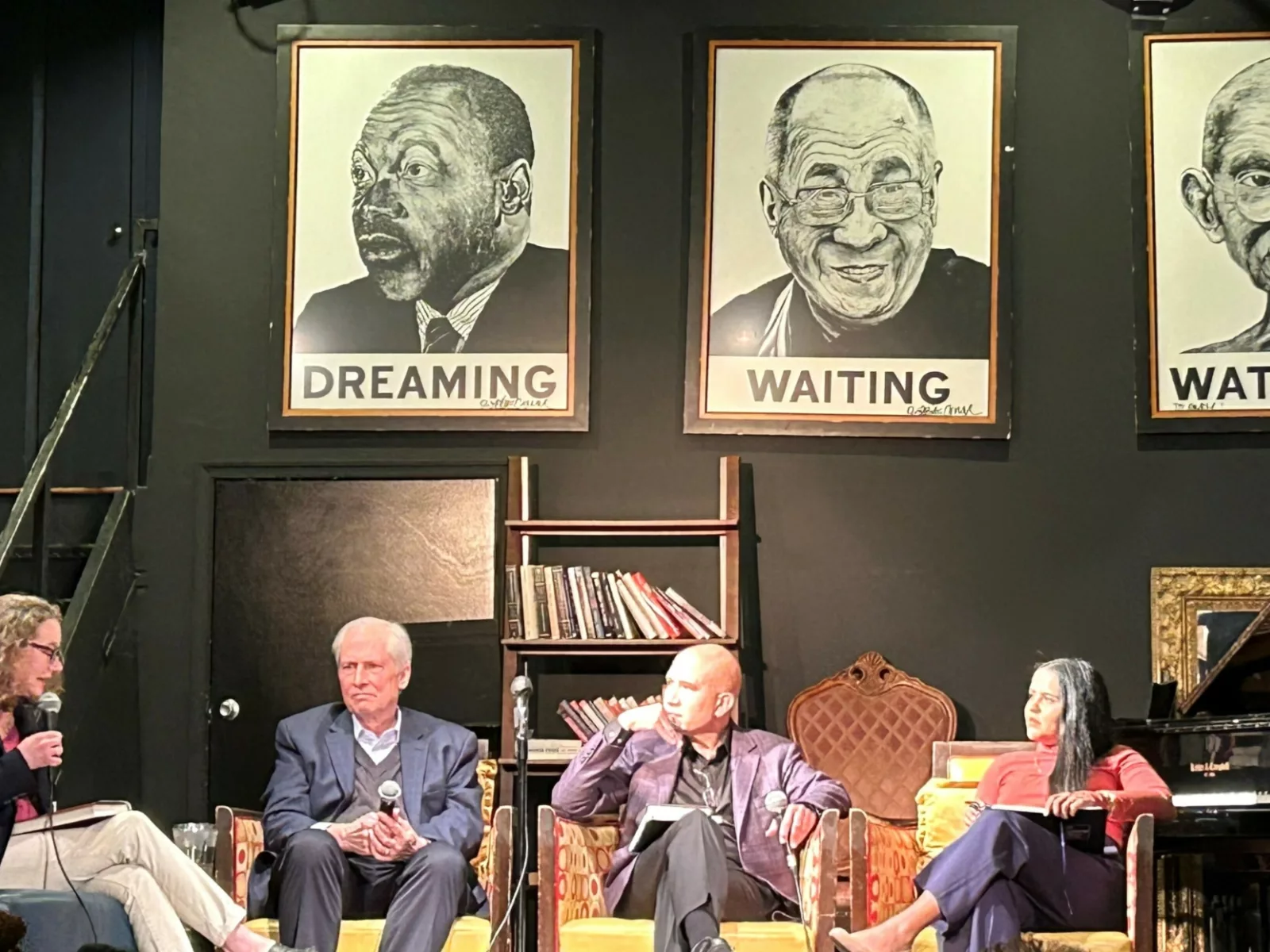This story was originally posted on Advancing Pretrial Policy and Research.
Six months ago, David Magura, the court administrator for Youngstown Municipal Court, was walking into work when he heard three police officers talking about the city’s new pretrial program. The officers opined that the changes would lead to mass releases, endangering the public. Magura, who had been at the helm of the enhancements to the program, stayed quiet. But another officer, who had served as a
law enforcement representative in the group of 28 people responsible for hashing out the system’s final details, stepped in. He explained that Youngstown’s previous approach was not working and that the new focus on making individualized release decisions was a more effective and fair way to support community well-being and safety.
“It was really cool,” remembered Magura. “Instead of it just being me and a judge talking about it, we now have people on the policy team that have ownership, and they’re able to have these conversations.”

I’ve been working in this community for 15 years. I cannot think of a single project that garnered this type of collaboration among so many different entities.David Magura court administrator for Youngstown Municipal Court
Youngstown’s pretrial improvements are advancing more informed and individualized pretrial decisions. And for the first time, system stakeholders — including police officers, judges, prosecutors, and criminal defense lawyers — are collaborating in ways the city has never seen before.
“I’ve been working in this community for 15 years. I cannot think of a single project that garnered this type of collaboration among so many different entities,” said Magura.
Youngstown’s path to success started in 2020, when APPR accepted the city’s application to become a Learning Site, alongside Douglas County, Nebraska; Miami-Dade County, Florida; Williamson County, Texas; and Wake County, North Carolina. The program offers each site 24 months of technical assistance as they identify effective and fair improvements to pretrial policies and practices.
Learning From Past Experience
Prior to this, Youngstown had relied heavily on financial conditions of release. And though administrators tried in 2019 to introduce a pretrial assessment tool, the Ohio Risk Assessment System (ORAS), Magura said the effort “failed miserably” because city officials and community members felt that the ORAS factors, like employment and housing, were biased against the city’s poor residents. Additionally, the group did not seek buy-in from people such as defense attorneys and police officers, stakeholders with
important perspectives and whose support was essential to pretrial improvement efforts.
Once Youngstown received APPR support, the team set out to implement a new pretrial assessment tool, the Public Safety Assessment (PSA). “We were fascinated because we recognized that people without employment or stable housing had been at a disadvantage, since ORAS used those factors. Given the socioeconomic makeup of Youngstown, the PSA was more attractive because the factors relate only to age and criminal history,” said Judge Carla Baldwin, one of the leaders behind Youngstown’s pretrial improvements.
While implementing the PSA, stakeholders created a reference guide and made it available to everyone attending court, including each person charged, their families, and any victims. This guide explains how the PSA works and how the scores are matched with presumptive levels of release. The city’s policy team collaborated with the pretrial improvement group to draft bench cards for judges, with information about the PSA, the meaning of the scores, the release conditions matrix, and the presumptive release levels.
Baldwin — who has worked within the criminal legal system for nearly 13 years as a prosecutor, magistrate judge, and now presiding judge for the municipal court — became a champion for pretrial improvement after seeing numerous people locked up because they could not afford to pay for their release.

“I think, over time, it has become a mechanism for certain people to keep others contained,” she said. “I am a believer in people. I believe in redemption. I believe that the law can be used to redirect individuals and put them on the right path. I just wanted to do my part and use my influence to right the system and give people an opportunity to succeed.”
I believe that the law can be used to redirect individuals and put them on the right path.Carla Baldwin judge for Youngstown Municipal Court
Unprecedented Collaboration
To achieve that goal, Baldwin, Magura, and their team sought buy-in from stakeholders in every corner of the city’s criminal legal system. Importantly, each member, regardless of their status, had an equal vote. With more than two dozen stakeholders assembled, and with help from APPR, the team created a system map that tracks how a person moves through the city’s pretrial system, from a 911 call to sentencing.
“We looked at how each one of those decision points was integrated into that person’s life. And that was really what helped us say, you know, we need to fix our system at this particular decision point,” said Magura. “I don’t know how you fix a problem if you don’t identify what you’re doing.”
Revamping the pretrial system meant that the city also needed to improve services so that people released pretrial had access to supports that would ensure they returned to court and remained law-abiding. The city created two court date notification systems: one automated, and one using Google Voice for real-time communication between people and pretrial staff. Through an $87,000 grant from the Bureau of Justice Assistance, the city also funded a community outreach coordinator who meets with participants at the jail before arraignment and helps identify issues that might impede access to the pretrial process, such as language barriers or mental health needs. If the person is granted supervised release, the coordinator walks them through their conditions and answers any questions about a process that can be complex and difficult to understand.
Data-Informed Improvement
Youngstown’s work is showing promise. Last quarter, 89 percent of people released attended their court hearings, and 98 percent remained arrest-free. Magura is currently compiling data to compare outcomes among people who received a financial release condition.
Prior to its pretrial improvements, Youngstown did not track the number of people released. Stakeholders hope that tracking release rates now will provide historical context for setting additional measurable goals, and contribute to a culture of continuous improvement. Since the implementation of these improvements, for example, data shows that 24 percent of people booked into jail are released — people who would not have been released prior to the city’s pretrial improvements.
“I can say that, for those people who were released, their lives were significantly impacted because they don’t have to worry about losing a job, losing their children, losing their housing because they were in jail,” Magura said.
The city’s improvements have also benefited jurisdictions statewide. After a state legislator traveled to Youngstown to learn about the court date notification systems, the lawmaker introduced legislation to allocate $1.2 million in funding across the state for court reminders.
Future Plans
In the future, Magura is hoping to educate more community members about pretrial justice, including how stakeholders monitor and measure pretrial improvements. He also wants to forge relationships with resource providers, and eventually expand the program countywide by using data to show the value of pretrial improvements.
Youngstown’s team plans to publish its data online so that the community can monitor its success. In the meantime, the city is focused on maintaining the strong connections among stakeholders and continuing to develop the pretrial program to benefit more Ohioans.
“We have to be willing to be uncomfortable to make the system equitable for everyone. What I always like to say is that generations are counting on us,” said Baldwin. “Because if we can get it right now and continue to win, we will see the positive results for generations to come.”
To learn more about how pretrial improvement starts with an inclusive policy team, refer to APPR’s Roadmap for Pretrial Improvement on how to make sustainable system changes.



















